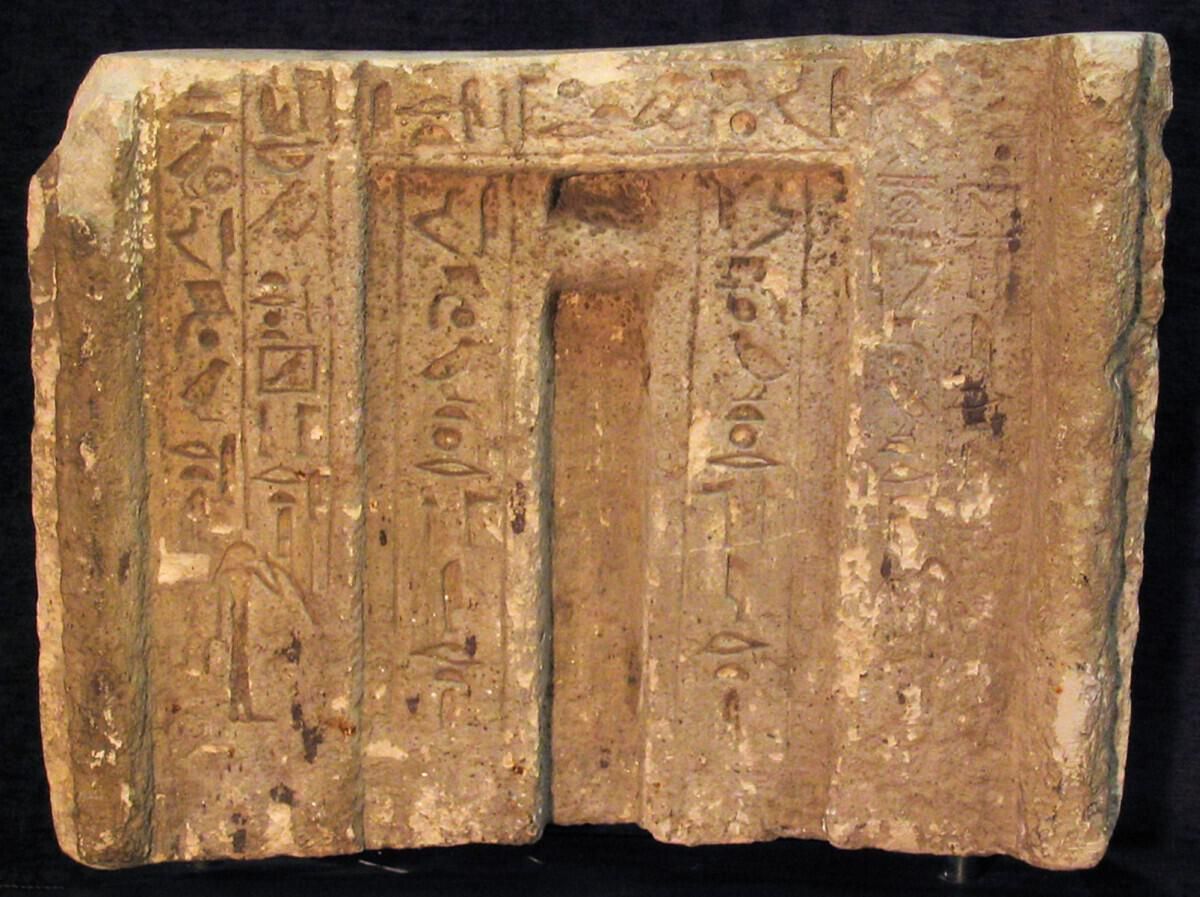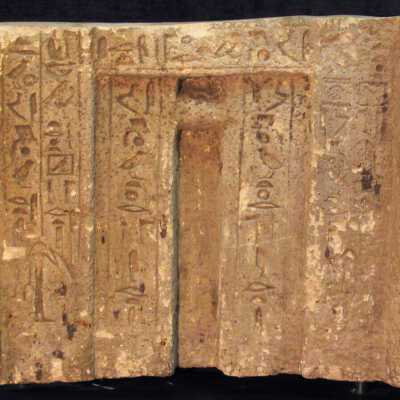False Door
Name/Title
False DoorEntry/Object ID
97E0160Description
Limestone relief with hieroglyphic inscriptions in honor of Irti, Noblewoman and Priestess of Hathor.Type of Sculpture
OtherArtwork Details
Medium
LimestoneContext
Made for the the tomb of a priestess named Irti of the goddess Hathor. The so-called “false doors” are a common feature of Egyptian tombs of the Old and Middle Kingdoms (2780-2280 and 2134-1778 BC, respectively). The Egyptians believed that the afterlife was similar to the life of the living. (See also: Ushabtis; Canopic Figures.) For this reason, the dead too required food for sustenance. Offerings were supplied by the descendants of the deceased or by mortuary priests. It is believed that the primary function of false doors like this one was to offer the soul of the deceased access to this world in order to receive such offerings. They are called false doors because they do not open. There are a total of five inscriptions on this false door: the horizontal text on the lintel, two columns on the inner jambs, and four columns on the outer jambs, two on each side. The horizontal text on the lintel and two columns on the inner jambs reads “The revered one before the great god, Irti.” The right side jamb in two columns reads 1) “…for the revered one, Irti,” and 2) “…One connected to the royal cult, the Priestess of Hathor Irti.” The left side jamb in two columns reads 1) “…[revered one before?] the great god and lord of the West, One connected to the royal cult, the Priestess of Hathor Irti;” and 2) “…[revered before Osiris, lord of Bu]siris, the revered one Irti.” On the two outermost columns are two images of a human, holding a lotus and standing facing the central niche, as if about to enter the doorway.Made/Created
Date made
2225 BCE - 2175 BCETime Period
Bronze AgeEthnography
Culture/Tribe
Egyptian

